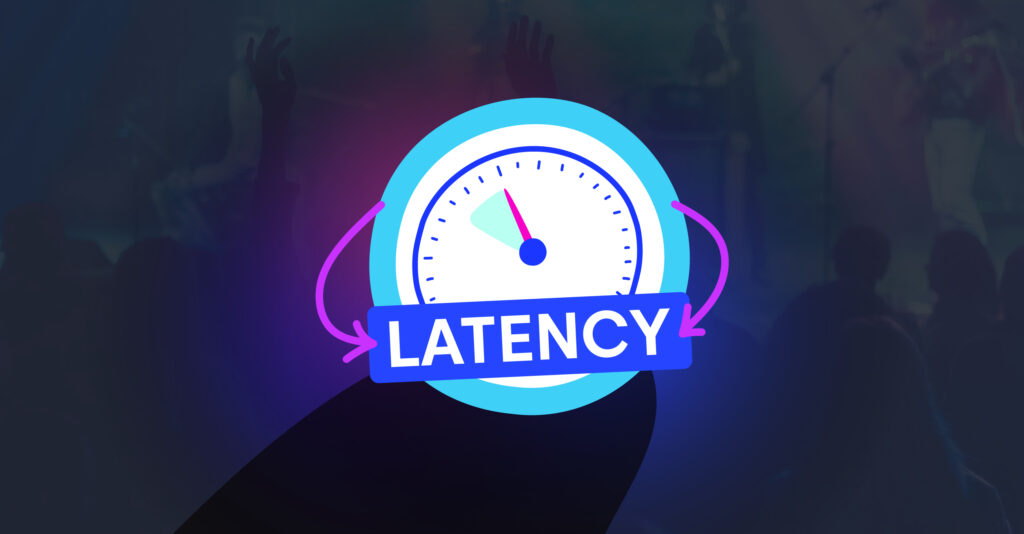Online gambling isn’t just about luck anymore. It’s also about speed. Specifically, latency, or how fast a platform can react to your decisions and how quickly your winnings land in your account. In an age where online gamers obsess over ping and packet loss, it’s no surprise that similar conversations are happening among casino players. Whether you’re sitting at a virtual poker table or playing a live roulette game from your mobile, milliseconds matter more than ever.
Speed is the silent decider
For gamers, high latency is a known enemy. Lag ruins immersion, delays reaction time, and can even cost you a match. In online casinos, the consequences are different, but just as frustrating. A buffering video feed during a live dealer game can mean missed bets or confusion around results. For slots or RNG card games, slow servers can stall the game loop, breaking focus or sowing distrust.
This is why the topic of fast infrastructure is creeping into more conversations around online casinos. Platforms know that smooth performance builds trust, particularly in games where real money is on the line.

Performance also affects what happens after you win. People are talking about fast withdrawal casinos in 2025 for good reason. These sites have become popular because they’ve invested in better back-end tech to reduce latency and transaction lag. Instead of waiting days for payouts, players on these platforms often receive funds within hours, or even minutes, especially when using crypto or e-wallets.
Sites that appear in fast withdrawal rankings tend to work with high-speed payment gateways and offer lower manual verification hurdles. Speed and transparency are quickly becoming the gold standard in this space. Just like in gaming, the ability to move quickly isn’t just a nice-to-have. It’s expected.
Live dealer games raise the stakes
Latency becomes especially noticeable in live dealer games. These experiences rely on a mix of real-time video, betting input, and rapid game resolution. A glitch in any part of that chain ruins the experience. Casinos that operate from poorly connected studios or have underpowered content delivery networks (CDNs) struggle to keep up with player expectations.
Games like blackjack or baccarat with live dealers require tight synchronisation between camera feeds, user interfaces, and dealer actions. Any lag can lead to misinterpreted hand results or delayed payouts. In competitive live formats where side bets, progressive jackpots, or chat features are involved, stable and fast servers become non-negotiable to assure low latency.

The crypto influence on infrastructure
Taking a step away from latency, cryptocurrency casinos have introduced a new tech race. These sites often operate outside traditional banking systems and instead build their payment and gameplay stacks on decentralised technologies. While this can mean fewer location-based restrictions, it also demands fast and stable internet services to compensate for blockchain settlement delays.
Many of the newer crypto casinos are already pushing for faster gameplay loops and lightweight front-ends, designed to be used even in lower-bandwidth regions. They’re also using this speed as a selling point. On forums like Bitcointalk and r/Gambling, users frequently cite site responsiveness as a major reason for switching platforms.
Interestingly, the integration of crypto has sometimes revealed infrastructure weaknesses. Certain tokens take longer to confirm than others. Ethereum congestion, for instance, has led to slow payouts during peak periods. Casinos that support multiple chains and use Layer 2 tech like Polygon or Arbitrum have found ways around this.

Why server location still matters
One underappreciated factor in casino performance is physical server location. While cloud-based platforms have allowed for more distributed systems, the “nearest node” still plays a major role in latency. A user connecting from Manchester to a casino hosted in Curaçao may experience more lag than one connecting to a UK-based mirror.
Some platforms now advertise their server clusters’ locations, particularly those that serve competitive or tournament-style poker. These servers are often located in or near internet exchange hubs like London, Amsterdam, or Frankfurt.
For high-frequency players like those using autoplay slots, placing dozens of sports bets, or playing speed baccarat, those few milliseconds of delay can make a difference in rhythm and trust. A delayed button response or an out-of-sync wheel spin might seem small, but it introduces doubt, especially when money is involved.
Security vs. Speed
Security protocols also affect how fast casinos can operate. Two-factor authentication, KYC checks, and anti-fraud algorithms all slow things down but are often necessary. The challenge is keeping these layers in place without letting them bottleneck gameplay or payouts.
Casinos that use automation and AI to verify documents or flag suspicious behaviour are finding a better balance. Some sites now allow for instant withdrawals after the first manual KYC check, treating new transactions as lower risk if player activity matches typical patterns.
Fast withdrawal casinos often employ these tools to give returning players a smoother experience without compromising compliance. The challenge is doing this transparently. Players don’t mind checks, but they do mind unexplained delays, especially when it comes to high latency and being able to load the important banking pages..

What players can do
There are some steps players can take to improve things like latency or their general experience:
- Check the casino’s server speed using third-party tools or browser dev consoles
- Use a wired connection or fast Wi-Fi, especially for live dealer games
- Avoid peak hours when network congestion could cause slower response times
- Stick to regulated, well-reviewed platforms that disclose payment and server information
For those playing in crypto casinos, it’s also worth checking the current transaction speed of the blockchain being used. Tools like Etherscan or Solscan can show how congested the network is and estimate wait times for token transfers.
Final thoughts
Online casinos are no longer judged solely on games or bonuses. Technical performance has moved up the list of player priorities. Much like the eSports world values tick rates and refresh cycles, the gambling world is waking up to the importance of seamless infrastructure.
If you’re spending real money on digital bets, you have a right to expect both fair odds and fair speed. Whether you’re hitting a jackpot or withdrawing a modest win, that instant feedback loop, created by low latency, makes all the difference. In 2025, speed is the baseline.

For more gambling-related posts like this one on latency and luck, click right here.